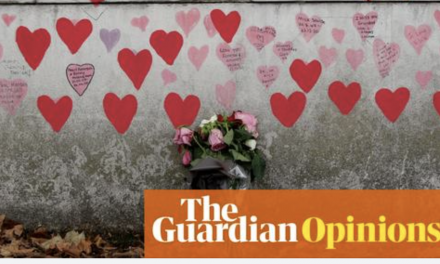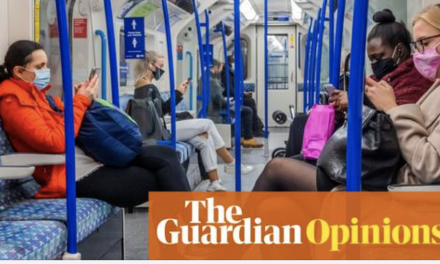Here the Independent SAGE publishes its recommendations for government based on an open and transparent examination of the scientific evidence. The PDF of the full report can be read here.
On 4 May 2020, a 13-strong committee convened by former UK government Chief Scientific Adviser Sir David King discussed some aspects of the science behind the UK strategy in a two and a half hour meeting. Leading experts in public health, epidemiology, primary care, virology, mathematical modelling, and social and health policy, raised ideas and issues for consideration which we are pleased to share below.
The Independent SAGE focuses on the priorities for measures to be taken to support a gradual release from social distancing measures through a sustainable public health response to COVID-19. This will be essential in suppressing the virus until the delivery of an effective vaccine with universal uptake. We do not address, except as it is directly relevant, the clear structural and procedural weaknesses that contributed to the current situation as we expect these to be addressed in a future inquiry. We draw extensively on the policy considerations proposed by the World Health Organization, which provide a clear structure on which an effective policy should be based given the inevitability that the virus will continue to cross borders.
CONDENSED INDEPENDENT SAGE RECOMMENDATIONS
1. Suppression
Making sure that numbers of new cases are going down every week (suppression) must be the government’s number one priority. We must be sure that the number of new infections is consistently very low before coming out of lockdown. Coming out of lockdown too soon, or without ways to keep spread down after lockdown, will mean more people will die and a new lockdown will be necessary.
2. Test, trace and isolate: local coordination
The government should focus on building local public health capacity to identify, test, treat and isolate every case, and to trace and quarantine contacts. This requires building capability within local communities. The government should also help people quarantining with clear communication on how to do this effectively, especially for those living with many other people or in challenging conditions. Quarantine should be for 14 days and not 7, in line with neighbouring countries.
3. Counting
Different government agencies have different ways of counting people who are sick and, sadly, people who have died, which can make the numbers reported by the government hard to interpret. The UK Statistics Authority, an independent body, has a detailed code of practice for how official numbers should be reported. This code requires trustworthiness and high quality data that supports society’s needs. We call on the government to follow this code of practice at all times because it’s essential that people have faith in the numbers reported by the government.
4. Mathematics
There are many ways to use mathematics to understand patterns of infection and reproduction rates (R). We believe that a technique called Dynamic Causal Modelling (DCM) could be a really useful method to help understand which policies – like social distancing and tracing – work best in each area of the country.
5. Behaviour
How each of us behave in our daily lives can make a massive difference to slowing down the spread of the virus. The government needs to plan for how to help us all remember to do the things shown to work best, such as washing our hands often, avoiding touching our faces and coughing or sneezing into a tissue.
6. High-risk places
We know that some places like hospitals, care homes, prisons and detention are places where it is particularly easy for the virus to spread through staff and residents. The government need to urgently focus on measures to stop the current spread in these places and protect the often vulnerable people working and living within them. This requires support with having enough staff, widespread testing, enough protective equipment and physical space for isolating people who fall sick.
7. Workplace
Health & Safety We want workers to feel safe when returning to work, for employers to understand what their responsibilities are, and for health and safety legislation to provide protection for those reporting violations.
8. The right equipment and the right people
The processes of purchasing and distributing vital supplies for the pandemic, such as protective gear (like masks, gowns and gloves) or scarce medical supplies (like ventilators) must be reformed and made more effective. Equally, we must make sure there are enough people to support key services: this includes nurses and doctors, but also public health workers, carers, supermarket workers, delivery workers, bus and train drivers and many others. Understanding where there were problems in March and April will help plan for future increases in cases.
9. Visitors bringing the virus
We need to make sure that visitors to the UK and Ireland are not importing the virus; we should do this by testing (and possibly quarantining) all arrivals. This might require using hotels or other facilities to help house people while they are quarantining.
10. Community engagement
Controlling the spread of the virus starts and ends with communities. We want people from across the country, especially those from ethnic minorities, low income or otherwise marginalised groups, to have a voice when policy topics are being debated and be at the centre of designing approaches that fit in with their local communities.
11. Schools
We want to make sure that all children, particularly disadvantaged children, continue to have access to learning while schools are closed. This means ensuring that children have access to the internet and the right technology to work with their teachers and classmates. Education is a human right and we have to work out how to provide it even in a pandemic.
12. Planning for future surges in infection
The government needs to plan for what happens if cases of the virus surge again. This means planning for ensuring enough equipment and staff for hospitals at the front line, but also ensuring there is strong provision of community health services (such as home care, dentistry and mental health services). It also means planning a way to allow hospitals and GPs to safely serve people who do not have COVID-19 but still require treatment (e.g. cancer patients or those needing surgery).
13. Social Security Safety net
The government should expand the social safety net, helping the most vulnerable, particularly minority ethnic and low income communities, whose lives are most affected by the virus and also represent a high percentage of our frontline key workers.
14. Learning about COVID-19 and its impact on health care
As we’ve learned more about COVID-19, doctors have realised that it is much more than a lung disease. It can also affect your heart, kidneys, gut or other organs. As we continue to learn about COVID-19 over the coming months, the NHS needs to make sure its advice to doctors is up-to-date and that the way patients are cared for is adapted as we learn more. This might include changing how the Nightingale hospitals are used to treat patients with COVID-19. We also need to understand urgently why so many more people are dying from non-COVID-19 related conditions than would be expected for this time of year so that the government can put this learning into practice in future policy to save more lives.
15. Hospital beds
Plans to reduce the overall number of hospital beds in the NHS per population should be suspended. Even if we suppress the virus, it will be with us for a long time so we’ve got to be prepared: in our hospitals, in our GP surgeries and in community health centres.
16. Co-ordination within and between the four nations
The way government and other health services are set up is complex. We need to improve coordination among different organisations within each nation (for example, the Department of Health and Social Care, Public Health England, NHS England and the care home sector in England) but also between nations.
17. Building infrastructure for the longer term
The government has adopted a centralised “command and control” structure for dealing with the pandemic. While this can be effective for some contexts (e.g. bulk buying protective equipment), it does not work well for tasks that need the involvement of communities. We call on the government to develop a long term plan to build local systems, embedded within communities, to support crucial public health functions (e.g. contact tracing, infection control, supporting social care).
18. Integration of health and social care
Integration of health services works well in Scotland, Wales and Northern Ireland and should be considered in England. The pandemic has highlighted the need for strengthening public health services, particularly in England and based on adapting services to local contexts. Communication between services and who has responsibility for different aspects of health and social care needs to be transparent.
19. Commitment
The Independent SAGE will continue its advisory work to help the UK suppress the virus, save lives and get our economy back in gear.
The PDF of the full report can be read here.
+++
Here is a press conference debating the report, chaired by journalist Samira Ahmed
+++
The members of the Independent Sage committee include:
- Sir David Anthony King, former Government CSA; founder and Chair, Centre for Climate Repair at Cambridge; Senior Strategy Adviser to the President of Rwanda; Chair of Independent SAGE
- Professor Gabriel Scally, President of Epidemiology & Public Health section, Royal Society of Medicine; current advisor to the government of Ireland
- Professor Allyson Pollock, co-director of the Newcastle University Centre for Excellence in Regulatory Science
- Professor Anthony Costello, Director of the Institute for Global Health, University College London; former Director at WHO
- Professor Karl Friston FRS, computational modeller and neuroscientist at UCL in charge of developing a generative SEIR COVID-19 model
- Professor Susan Michie, Professor of Health Psychology and Director of the Centre for Behaviour Change at University College London, member of SPI(B), SAGE sub-committee
- Professor Deenan Pillay, Professor of Virology UCL, former SAGE member
- Professor Kamlesh Khunti, Professor of Primary Care & Diabetes, University of Leicester
- Professor Christina Pagel, mathematician and professor of operational research, UCL
- Dr Zubaida Haque FRSA, Interim Director, Runnymede Trust
- Professor Martin McKee, Professor of European Public Health at the London School of Hygiene and Tropical Medicine
- Dr Alison Pittard, Dean of the Faculty of Intensive Care Medicine




